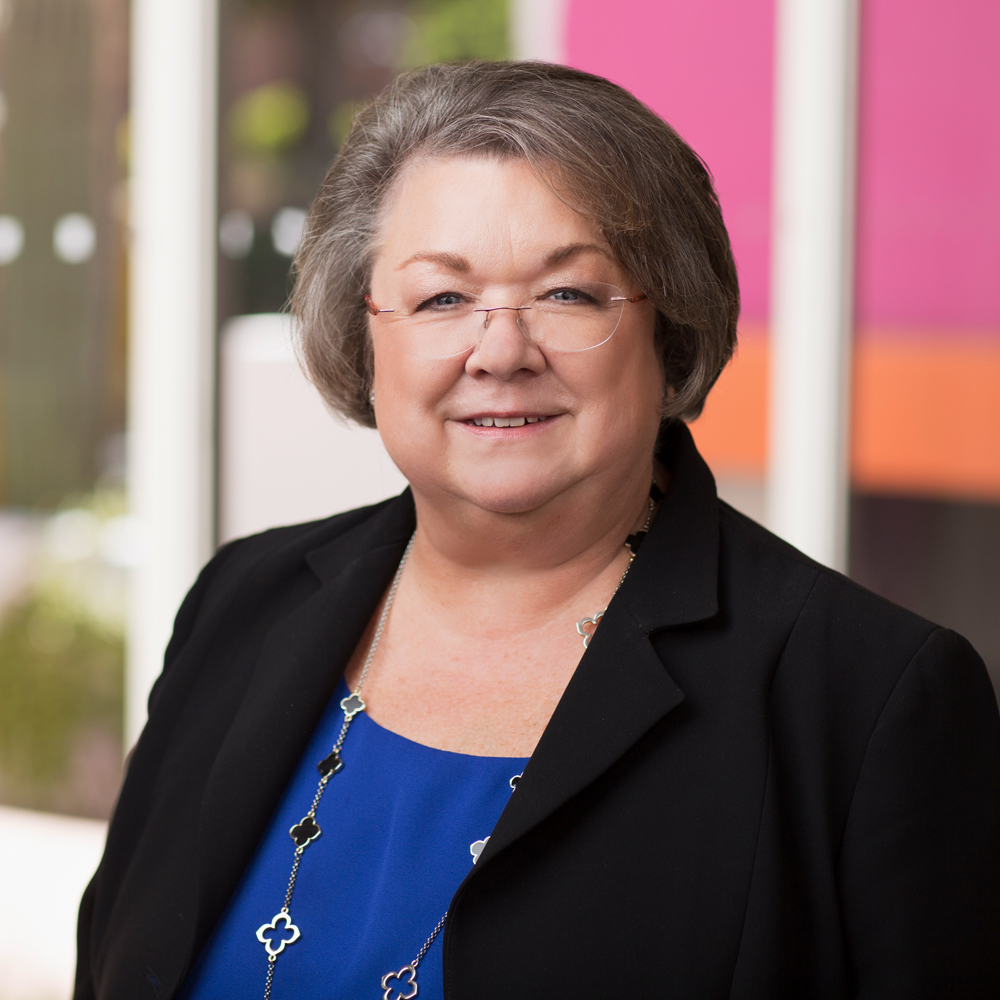
Celebrating Women with Initiative: Empower, Encourage, and Educate – Part 2
In recent years, the conversation around women in leadership positions has gained significant traction, highlighting the importance of gender diversity in the workforce. However, while progress has been made, women’s challenges in achieving leadership roles remain substantial. One such challenge is balancing work and personal responsibilities, particularly in the face of traditional gender roles and societal expectations. Additionally, there is a growing emphasis on the importance of DE&I in the workforce, with organizations recognizing the value of creating a workplace that truly represents the communities they serve. In this context, exploring how women can thrive in leadership positions while maintaining a healthy work-life balance and how DE&I initiatives can be leveraged to create a more inclusive and equitable workplace for all employees.
Join Leslie Burkes, Carly Bell, and Kevonne Holloway as they discuss women in leadership, work-life balance, and DE&I in the workplace.

Leslie Burkes
Global Senior Director of Professional Services and Education at LexisNexis Legal and Professional, Legal Business Solutions
About Leslie
Leslie leads a team of global consulting and education resources delivering a variety of services to optimize customer value of LexisNexis products. Focusing on the customer to drive outcomes and process excellence, Leslie has developed a center of excellence for professional services and education spanning her 15 year career with LexisNexis. Prior to LexisNexis, Leslie led Professional Services and Training teams for Sage Software.
Gina: How can we go about strengthening women’s voices in the technology industry?
Leslie: For women in technology, in whatever role they are in, it is important to embrace that leadership mindset. So, be a leader, whether you are an individual contributor, a team lead, or whatever you are. Believe in yourself and bring your whole self every day to the job. It is also essential within that mindset to demonstrate your leadership and knowledge within your role and not be hesitant to speak up. But, speak up as a leader and a thought leader within your role and space. Initiative is key to not being afraid and hesitant. Jump in. If there is a project that you are passionate about, step in, lean in, and bring your whole self to it and deliver those results.
Another critical thing is when you have a solid track record of delivering results, it will be recognized, and the path will be there for you. It will get you to that leadership role you may be seeking or whatever position you are looking for. But, it is that voice and mindset of a leader for where you are at that moment.
Gina: How can companies have a little more equity regarding hiring practices?
Leslie: We must attract a vast pool of applicants. So, casting the net wide, being open, having conversations within the hiring practices, and creating an equitable hiring practice. One of the things that I am passionate about is creating flexibility within the workspace and for my team—making sure that we have the space, particularly since COVID, and just the demands of working from home, childcare, and work-life balance. All of that plays into getting a wider pool of applicants, allowing for that flexibility to work across different time zones and circumstances. It gives you the ability also to reach customers where they are. I think being open and flexible and casting that wide net will help companies have a little more equity in hiring.

Carly Bell
Senior Talent Manager at MSL Group
About Carly
Leslie leads a team of global consulting and education resources delivering a variety of services to optimize customer value of LexisNexis products. Focusing on the customer to drive outcomes and process excellence, Leslie has developed a center of excellence for professional services and education spanning her 15 year career with LexisNexis. Prior to LexisNexis, Leslie led Professional Services and Training teams for Sage Software.
Gina: How do you balance your work life and home life?
Carly: Working from home and juggling family and personal demands can be difficult. In reality, as working women and caregivers/moms, we are rarely perfectly balanced between workload and life load in a given moment, day, or time. As we all know, there are ebbs and flows in business; some days, you have to ramp up to adhere to that. So, on those days, I lean in heavily into work and my deliverables and tasks. On other days, mom mode kicks in, and I have to keep my daughter at home because she has a 102-degree fever. That comes with juggling meetings, but that is the act of being unbalanced. That is the reality of life we can all relate to because things are constantly thrown at us. We have fast turnarounds on something, or we must meet a deliverable we just learned about this morning. So, the idea of work-life balance is truly a reality of being unbalanced and finding that you must be agile and flexible. For a long time, I chased that perfect work-life balance. I had days where I felt mom guilt, but what I learned is that you can feel, as a woman, professionally fulfilled and come home from a productive day at work and still be a great mom, partner, and friend and not have to hone in on that perfect 50/50 split but rather hone in on being a good colleague, professional, mom, partner, friend, sister, aunt, etc. and find those ways to be flexible. Go with the flow and find time to rest and recharge when needed.
Gina: What unrealistic work-life balance goals did you set for yourself earlier in your career?
Carly: A few came to mind, mainly those unwritten goals of being in the office before 8 am and not leaving until after 6 pm for that perception of physically being there. Another example is trying to turn around tasks and deliverables as quickly as I could to prove that it was a sense of urgency for me. In reality, it is about the quality of your work and the deeper understanding of the business and or client needs versus racing through a task just because you want to respond to your boss quickly, asking those clarifying questions, and making sure that your quality of work is delivered to your expectations. I advise everyone on this call to find your Einstein windows. Those are the points of the day when you are most productive. You have the best and most innovative ideas, and you just produce your best work. Find your Einstein windows and take ownership of your calendar, organize and manage your time so that you are producing the best work that you are proud of, and when you do all of this, you will find that you avoid burnout and will produce your best work.

Kevonne Holloway
Managing Director for Global Content Partners at Elsevier
About Kevonne
Kevonne is a respected leader in healthcare academic publishing and technology solutions. She brings more than 15 years of health industry experience to her role, managing and implementing pivotal strategic initiatives to provide rich content for Elsevier’s growing digital footprint, which directly improves the customer experience by enriching and advancing outcomes.
Gina: Where have you seen authentic leadership in your career?
Kevonne: I believe in servant leadership. It is a philosophy built on the belief that the most influential leaders strive to serve others and put others before themselves versus trying to accrue power or take control. With that philosophy, there are four primary principles, encouraging diversity of thought, creating a culture of trust and building a culture of psychological safety, being unselfish in your mindset and putting others before you, and fostering leadership and others. When you link that back to authentic leadership, commitment to bettering yourself as a leader, I have seen this in a lot of mentors and women that I look up to specifically and men who take it upon themselves to ensure that they are not necessarily the most intelligent person in the room. Still, they are harnessing the power and talent of the people in the room. Through that process, they are bettering themselves. They are learning from others and taking it upon themselves to do a lot of reading. For example, I like to read a lot about leadership. But they also look to other avenues to improve their knowledge and skillsets, cultivating self-awareness. I have seen many great leaders ask for timely feedback from the people that report to them, the people in the organization, their peers, and management layers above them to round out areas for strengths and areas for development, and discipline—having the discipline to adopt a philosophy and stick to it. So, one of my mantras is being comfortable with being uncomfortable. Every day, I try to do something that puts me into that learning mindset where I am uncomfortable—then inspiring faith. To inspire faith in people, you must have this psychologically safe space that you create through trust, allowing you to foster leadership through other people. That is how you create and inspire. It is easy to say, well, let’s motivate people. For example, Michelle Obama is a masterclass, inspiring, and very motivational. She does not come to be inspiring and motivating. She is just authentic. She is vulnerable and real, so I like to emulate leaders such as Michelle Obama and other mentors I have had over my career to shape and add to servant and authentic leadership.
Gina: Tell me a little about the importance of diversity and inclusion programs and how we can strengthen that message outward.
Kevonne: DE&I is critical. Business results aside. It comes from commitment, not only from the top but from all layers of the organization. You need to know that the organization, the management, and the organization’s senior-level management are all committed to DE&I. But then there has to be the space for grassroots efforts: the employee resource groups, the programs that can be driven and led by employees truly passionate about DE&I in the organization. I think where those two things meet – the commitment from senior management and the grassroots efforts – is where you have your sweet spot. To strengthen DE&I in an organization, you must have the commitment, passion, and willingness to pursue it. It is not a destination but a journey. We can always be better and do better, and so you have to be committed to that journey, to that ride. Understanding that it is going to evolve quickly. For example, with the murder of George Floyd, we have seen a considerable uptick and awareness around many different topics. One of the things that I am grateful for at Elsevier is we look at five dimensions of diversity: race, ethnicity, gender, generation/age, sexual orientation, and disability or ability. Looking at the intersectionality between all of those is important because when you progress in DE&I, you are progressing and advancing the entire institution.

